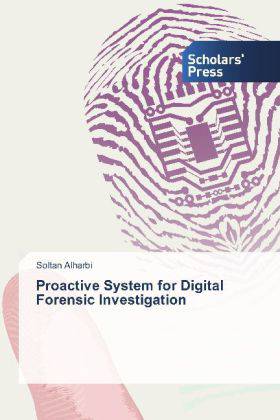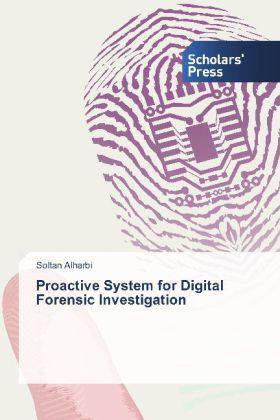
- Afhalen na 1 uur in een winkel met voorraad
- Gratis thuislevering in België vanaf € 30
- Ruim aanbod met 7 miljoen producten
- Afhalen na 1 uur in een winkel met voorraad
- Gratis thuislevering in België vanaf € 30
- Ruim aanbod met 7 miljoen producten
Zoeken
€ 36,45
+ 72 punten
Omschrijving
Digital Forensics (DF) is defined as the ensemble of methods, tools and techniques used to collect, preserve and analyse digital data originating from any type of digital media involved in an incident with the purpose of extracting valid evidence for a court of law. DF investigations are usually performed as a response to a digital crime and, as such, they are termed Reactive Digital Forensic (RDF). Although RDF investigations are effective, they are faced with many challenges, especially when dealing with anti-forensic incidents, volatile data and event reconstruction. To tackle these challenges, Proactive Digital Forensic (PDF) is required. By being proactive, DF is prepared for incidents. This book focuses on the detection and analysis phase of the proactive investigation system, as it is the most expensive phase of the system. In addition, theories behind such systems will be discussed. Finally, implementation of the whole proactive system will be tested on a botnet use case (Zeus).
Specificaties
Betrokkenen
- Auteur(s):
- Uitgeverij:
Inhoud
- Aantal bladzijden:
- 84
- Taal:
- Engels
Eigenschappen
- Productcode (EAN):
- 9783639715569
- Verschijningsdatum:
- 7/05/2014
- Uitvoering:
- Paperback
- Afmetingen:
- 150 mm x 220 mm
- Gewicht:
- 144 g

Alleen bij Standaard Boekhandel
+ 72 punten op je klantenkaart van Standaard Boekhandel
Beoordelingen
We publiceren alleen reviews die voldoen aan de voorwaarden voor reviews. Bekijk onze voorwaarden voor reviews.











